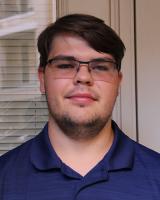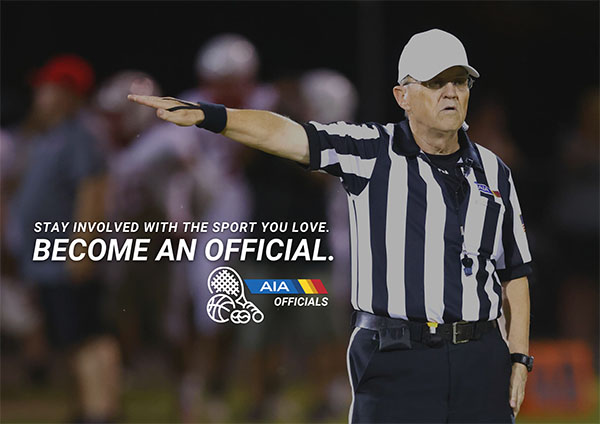How Notre Dame Prep combines church and football
December 9, 2021 by Finn Garrison, Arizona State University

Finn Garrison is an ASU Cronkite School of Journalism student assigned to cover Notre Dame Prep for AZPreps365.
“It's great to have the chapel packed … I think it's a great way to come together in a different setting, rather than a team. But they come together to kind of worship together and pray together, which is also important,” said Father Kurt Perera of Notre Dame Prep’s football team the morning of their playoff game against Apollo on Nov. 19.
Since the creation of football, acts of religion have taken place both on the field and off it. Today, athletes are demonstrating how they practice their religion whether through prayer before the game or creating religious nonprofit foundations to help others.
This is seen with professional football players such as Indianapolis Colts quarterback Carson Wentz who started the AO1 Foundation and its sole mission to “Uplift individuals and communities around the world by demonstrating God’s love for His people.” Or former NFL quarterback Tim Tebow who could be seen praying with teammates and opposing players in a circle before the game.
At Notre Dame Prep, students take part in a daily prayer that is conducted before school, at the beginning of each period, after lunch and at the end of the school day. Prior to the COVID-19 pandemic, students, faculty and staff members would celebrate Mass. Students read scriptures, sing in the choir or serve at the altar. The school also hosts a Eucharistic adoration on the first Friday of every month.
When discussing the importance of Catholicism in a student’s life, Perera, the campus chaplain at Notre Dame Prep, said, “It's just awakening that desire in our students to see, ‘you know what, there is something out there, there is meaning to my life, I do have a purpose. And I am loved in the midst of that,’ and that's why I think Catholicism is also important to our students, and just getting them to realize that.”
For the football team, practicing Catholicism plays a huge role in the players’ daily lives. Like the other sports teams at Notre Dame Prep, the football team prays before and after every practice and game.
Notre Dame Prep quarterback Braden Wells said, “For me, I love praying before and after every practice, and team Mass. I feel like the religious aspect of our team brings us together and creates a certain type of bond.”
On how prayer helps bring the team together both physically and spiritually, Notre Dame Prep sports information director Steven Shaff said, “I think it's a great bonding opportunity. Everybody enters that situation with a different background and their own religious beliefs, but it's an opportunity for our student-athletes and coaches to come together with a rallying thought and moment together before their competitions and practices.”
Perera believes practicing religion has mental health benefits as well. “I think it gives them a sense of peace and it calms a little bit of their anxiety and nerves. It's always good to have a little bit of nerves when you're doing something important, but I think beginning the day with prayer helps reduce that greatly,” he said.
Since being founded in 2002, Notre Dame Prep has taught its students the importance of giving back to the community. Using Christian beliefs, all students are required to complete 120 Christian Service hours to graduate. Christian service hours are serving those who are in need through nonprofit agencies. These include volunteering at St. Mary’s Food Bank, St. Vincent De Paul, or helping at the Feed My Starving Children nonprofit organization.
“The most important thing in our lives to be faith-filled and understand that God really is working through us, and we have to be faith-filled individuals,” said football head coach George Prelock. “I want these young men to be faith-filled young men and to go and serve others and ultimately, that is the most important thing that we do in our community.”
Aside from using religion outside of school to benefit the community, the use of religion in school can benefit the students in their academics. Research done by the Stanford Graduate School of Education suggests that adolescents who practice religion on a regular basis do better in school than those who do not follow a religion. In Dr. Ilana Horwitz’s study comprised of 2,491 teens between the ages of 13 and 17 attending public schools, Horwitz found that the students who practice a religion had an average GPA of 3.22 while those who did not had an average GPA of 2.93.
According to a 2018-2019 profile on Notre Dame Prep, the school’s average standardized test scores are higher than the national average. The mean national ACT composite score was 21.0. Notre Dame Prep’s mean ACT composite score was 25.1.
Although the ACT and GPA are different, they measure how well a student knows certain topics and subjects. Notre Dame Prep’s statistics in the school year of 2018-2019 and Horwitz’s findings coincide with the idea that students who follow a religion do better academically.
The Notre Dame Prep football team is no different in terms of academic success. Wide receiver Nate Wingfield Jr. has a 3.7 GPA. Linebacker Ethan Bush has a 4.0 GPA, according to their Twitter bios. These players are achieving success both on and off the field.
The lessons learned in both football and religion can be the same. “Sports teach us how to teamwork, it teaches us how to strive for a goal. It teaches us determination, convictions, strength, camaraderie and working together,” Perera said. “So, these are all very essential parts of living the faith. We don't live our faith alone. We need to help others; we need to work together. We need determination. We need courage. We need strength.”
Catholic leaders like Pope Francis have also found similarities between sports and religion. In 2017, before Super Bowl LI in Houston, Pope Francis said, “Great sporting events like today’s Super Bowl are highly symbolic. Showing that it is possible to build a culture of encounter and a world of peace. By participating in sport, we are able to go beyond our own self-interest, and in a healthy way, we learn to sacrifice, to grow in fidelity and respect the rules.”
Not only is practicing Catholicism benefitting the football team at Notre Dame Prep now but they’re also reaping long-term benefits. According to a study from the Harvard T.H. Chan School of Public Health, “Results showed that people who attended religious services at least weekly in childhood and adolescence were approximately 18% more likely to report higher happiness as young adults (ages 23–30) than those who never attended services. They were also 29% more likely to volunteer in their communities and 33% less likely to use illicit drugs.”
Alongside being happier, religious 12th graders in the United States are said to have higher self-esteem and more positive thoughts, according to sociologists, Christian Smith and Robert Faris, with the National Study of Youth and Religion, located at the University of North Carolina at Chapel Hill.
Overall, Notre Dame Prep’s ability to mix Catholic teachings into football has likely benefited the players both in the short-term and long term. Regularly practicing their religion through prayer and Mass has helped the players bond with one another and has improved their academics. Long-lasting effects from following their religion could include a more positive mindset and higher self-esteem.
Although the role of religion being prominent within schools has become increasingly more contested in the United States, Notre Dame Prep has shaped the way Catholicism can be used in sports to promote values that help athletes become more active members in their community with required Christian service and service trips to help the less fortunate across the world.


